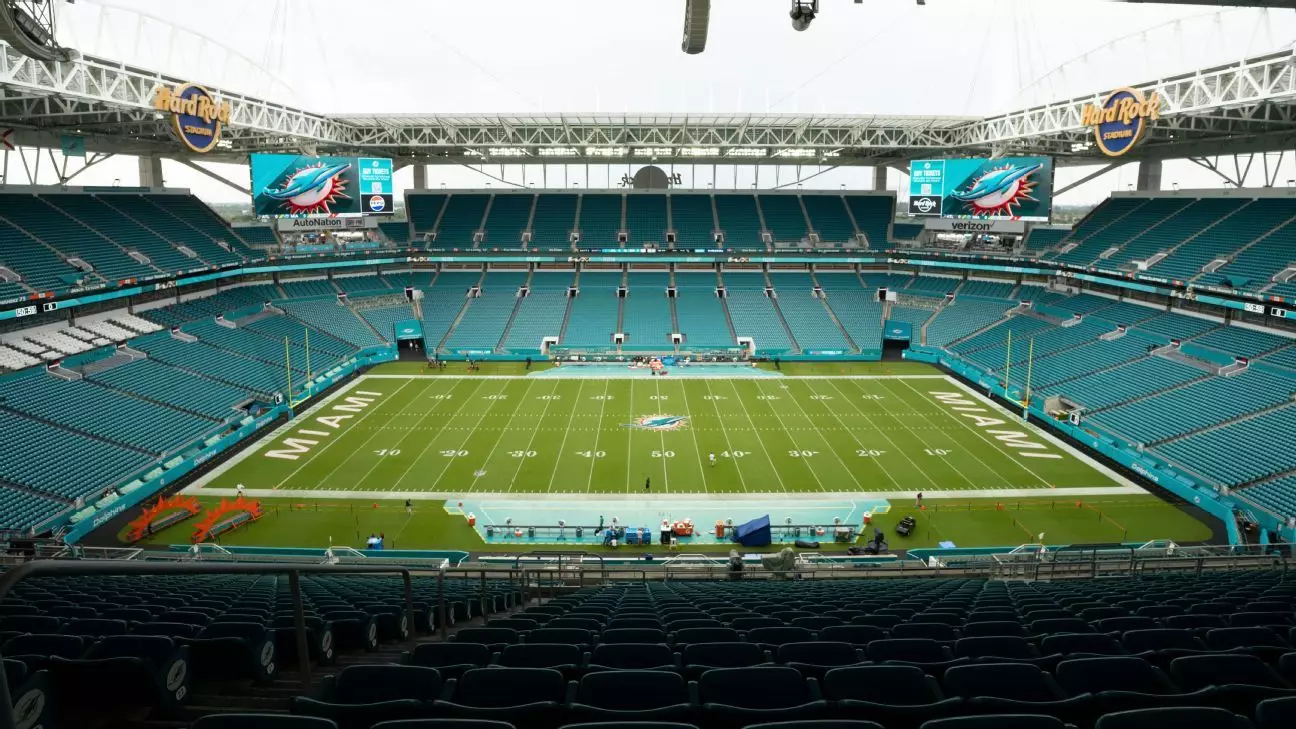In the evolving landscape of global football, the idea of hosting a LaLiga match in the United States reflects broader trends in the sport’s internationalization. LaLiga president Javier Tebas has vocalized ambitions to play an official league game in Miami next season, contingent on securing an agreement with the Spanish Football Federation (RFEF). Historically, the dream was to stage a match between Barcelona and Girona at the renowned Hard Rock Stadium back in 2018. However, this initiative was hamstrung by significant opposition from both the RFEF and FIFA, reflecting a complex web of regulations and traditions within the footballing world.
Revisiting Past Efforts and Legal Challenges
Tebas’s initial plans to take LaLiga across the Atlantic faced substantial hurdles. The backlash from FIFA and the RFEF highlighted the challenges of integrating international fixtures into established domestic leagues. Nonetheless, a recent lawsuit launched by Relevent Sports Group, spearheaded by Miami Dolphins owner Stephen Ross, has rekindled these aspirations. The lawsuit aimed to challenge FIFA’s restrictive policies regarding territorial integrity and domestic league matches, which previously stalled plans for a match in Miami.
Interestingly, Relevent’s decision to drop FIFA from the suit earlier this year can be seen as a strategic pivot that may allow for the long-anticipated LaLiga encounter in the U.S. to become a reality. Tebas himself remains cautiously optimistic, stating that while a match may eventually occur, the timeline is still uncertain given the current vacuum in leadership within the RFEF, which is grappling with internal changes and the absence of an elected president.
The push for LaLiga’s expansion into the U.S. comes at a time of heightened scrutiny regarding player welfare amidst increasingly congested football calendar schedules. The announcement of a 32-team Club World Cup set for next summer in the U.S. has further exacerbated concerns among players, leading to discussions of potential strikes. Prominent players like Rodri of Manchester City have voiced their concerns, citing the toll that such congested schedules can take on athletes both physically and mentally.
David Aganzo, the president of the Spanish Players’ Union (AFE), has indicated that if conditions do not improve, players may feel compelled to take drastic measures, including striking. This mounting pressure, alongside the opposition to FIFA’s scheduling of tournaments, creates a paradox where the desire to grow LaLiga’s brand internationally conflicts with the immediate needs of the players.
Tebas’s fervent advocacy for a LaLiga presence in the U.S. raises questions about the balance between branding opportunities and player welfare. In addressing the forthcoming Club World Cup, he acknowledged the justified concerns surrounding fixture congestion while standing firm on his promotional aims for LaLiga. It’s evident that Tebas finds himself navigating a tightrope, attempting to satisfy both commercial ambitions and the growing unrest among players.
Interestingly, while some stakeholders, including Aganzo, have suggested that advocating for a LaLiga match in the U.S. counteracts the opposition to expanded schedules, Tebas has clarified that supporting the global ambition of LaLiga does not inherently contradict his perspective on the Club World Cup’s implications.
The prospect of LaLiga matches in the United States symbolizes a fundamental shift in how football is perceived and commercialized. As global audiences continue to grow, major leagues are increasingly looking towards international markets to expand their reach. However, the intersection of this ambition with the logistical and ethical concerns of player welfare presents a complex challenge.
While the dream of playing competitive LaLiga matches in Miami may align with broader aspirations for international growth and fan engagement, it uncovers the inherent tensions within the sport, particularly around player rights and match scheduling. The developments in the coming months will likely set a precedent for how major leagues like LaLiga navigate their ambitions on the global stage while maintaining the integrity and welfare of their players at the forefront. As this dialogue continues, all eyes will be on the RFEF and the various stakeholders involved, waiting to see if they can strike the right balance for the benefit of all involved.


Leave a Reply